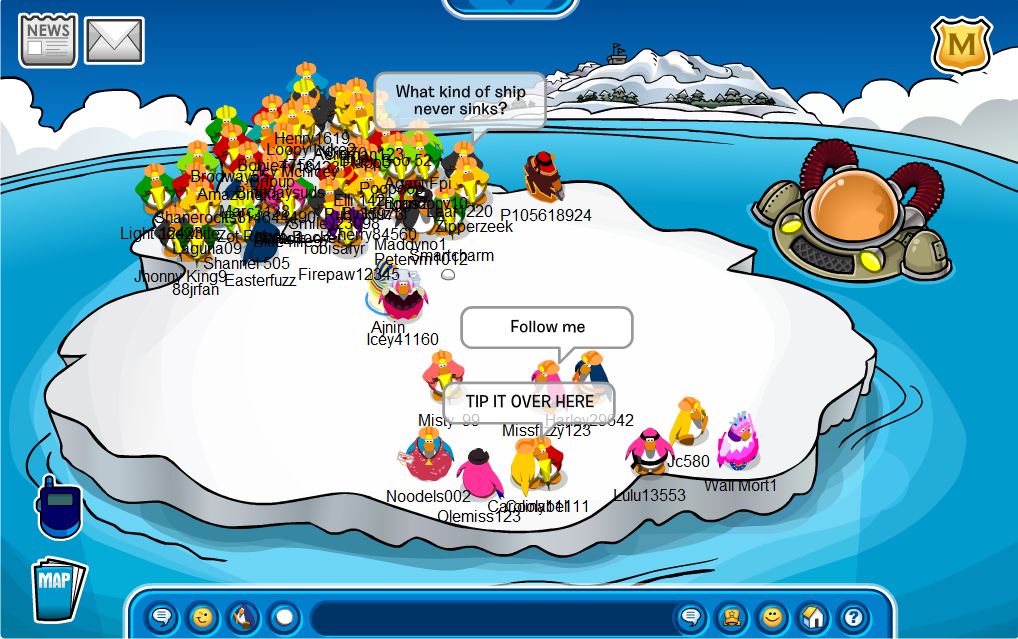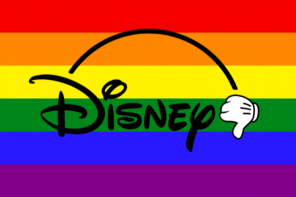As Club Penguin migrates to a more tropical climate, will its legacy melt away?
In the most controversial decision in recent memory, Disney has announced that the iconic children’s online game, Club Penguin, will be shut down on March 29th 2017. While no official reason for this closure has been put forth, Club Penguin aficionados point towards a dwindling player-base, and general quality decline from the “golden-years.” Disney intends to move players to a new mobile-only game, Club Penguin Island, sometime this year. While the promotional videos for the new island promise “myths and legends right under your beak,” many users are concerned by the migration to warmer climates, the risks of which were shown in the harrowing 2006 documentary, Happy Feet
Released in late 2005, Club Penguin established itself as a formative introduction to the Internet for children worldwide. Users could sign up with an email address, customize their own penguin, and instantly interact with thousands of children through virtual games and activities. Preaching the mantra of respecting others, chatting nicely, staying safe, and playing fair, Club Penguin acted as the training wheels for kids learning online conduct. Its omnipresent chat filter helped millions of children learn that if a word was bad enough to get you banned, it was probably too rude to say in front of your parents. The multitude of interactive games taught the importance of teamwork, and the value of new friendship. Above all, it allowed children to experience devastating jealousy towards penguins with the best igloos, translating directly to the successes of Instagram and Facebook as seen today.
Club Penguin’s rise to popularity occurred in a pre-iPad world. Back then, kids needed to walk uphill both ways before they could hop on their dial up internet (or broadband, if one was lucky) and visit their virtual igloos. Being able to connect with friends and strangers online was a new and magical thing. The world seemed just a little bit smaller every time you’d meet somebody from far away, and all of this could be done as an animated penguin. The combination of perfect timing and the implementation of aspects of popular websites at the time, such as Miniclip-style games and MSN Messenger-style chat, resulted in an enormous online community that would eventually exceed 200 million accounts. Club Penguin Times, the prestigious in-game newspaper, was once being read more frequently than the New York Times.
This incredible growth sprouted from the work of Club Penguin’s founding fathers Lance Priebe, Lane Merrifield, and Dave Krysko. Based out of New Horizon Interactive, a development studio in Kelowna, BC, the three sought to create a world that their own kids would enjoy. “We wanted something that had some social components but was safe, and not just marketed as safe. When we couldn’t find it, we said, ‘Well, let’s build it and see how it goes.’” Priebe, initially inspired by a Penguin drawing in a Far Side comic, began working on a web-based game in his free time. This project eventually manifested itself as “Experimental Penguins”, which was shortly followed by “Penguin Chat” one through three, and ultimately, Club Penguin. The three took a considerable risk, funding Club Penguin entirely on their own credit cards, but within a year their website jumped from 15,000 users to 1.4 million. “We found a need, and it turned out to be a bigger need than even we imagined,” stated Merrifield. The need proved to be so great that Disney caught wind, buying Club Penguin in 2007 for the modest sum of 700 million dollars.
Though pure in principle, Club Penguin was not without a dark-side. Peaking in 2013, young adults returned to their igloos to spread memes and malice. Screenshots of users being banned for outrageous comments juxtaposed with naughty language in what was essentially a digital school yard. Twitter and Reddit raced to produce the spiciest memes, and while the website continues to explicitly enforce bans for swearing, racism, or mentions of drugs, sex, or alcohol, the finely-refined humour of a penguin talking about smoking weed was too much for some to turn down. In a way, this behaviour taught children another fundamental rule of the internet: anything you enjoy will have people simultaneously trying to ruin it. While Club Penguin “strive[s] to be the safest place on the internet,” it proved to be a challenging battle to fight.
Ultimately, Club Penguin leaves behind a genuine legacy of having shaped the early internet and social networking. Though Lance Priebe may never get a Zuckerburg-esque movie chronicling the rise of Club Penguin, his role in penguin-themed entertainment cannot be overstated. As we approach March 29th and prepare for the end of an era, it is important to leave with the words given to us in the final Club Penguin update: “Together we can build an island, create a community, change the world… and even tip an iceberg. Waddle on.”








